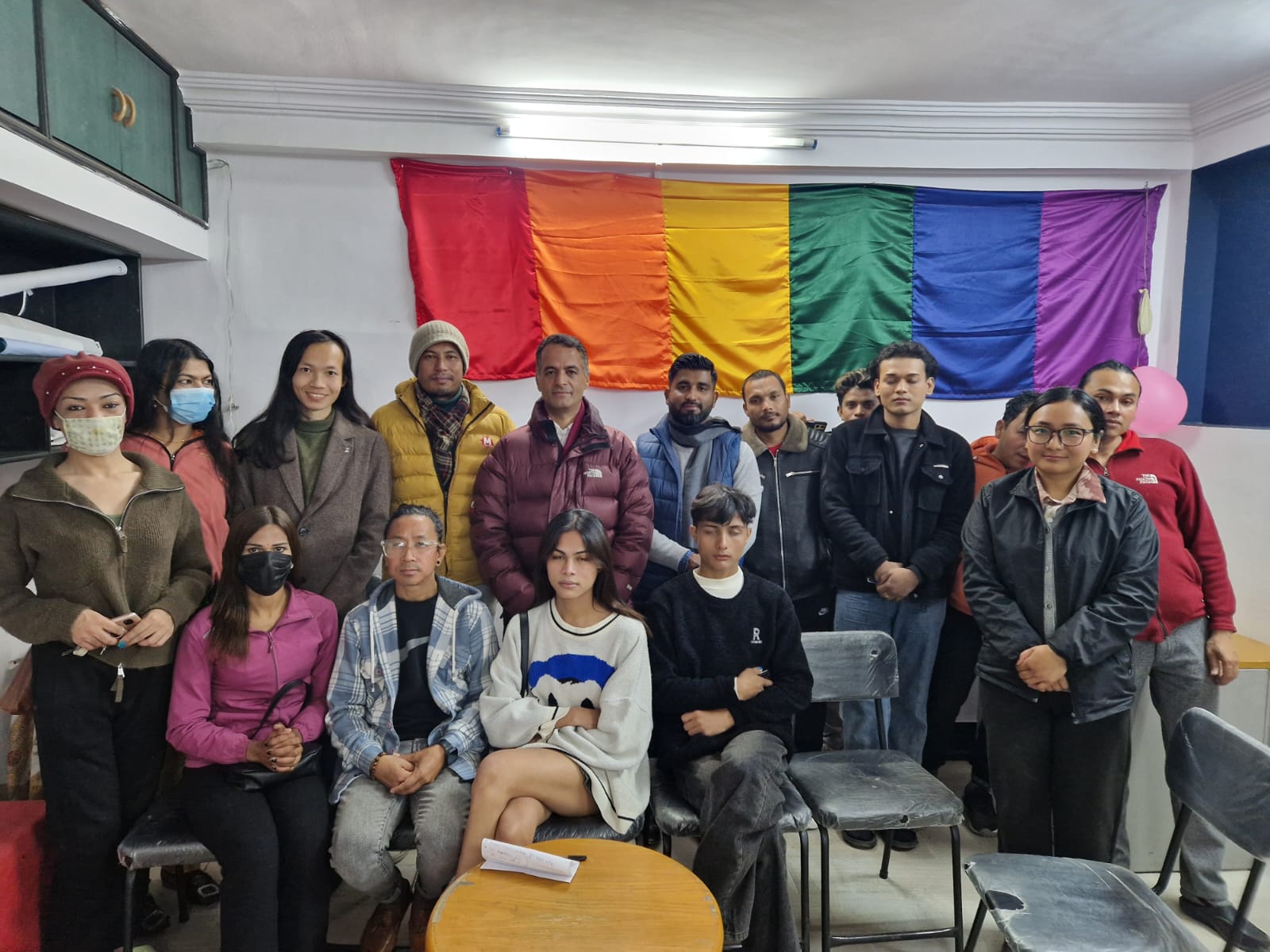
Kathmandu: In 64 countries worldwide, sexual and gender minority individuals are still criminalized. Among them, 12 countries impose the death penalty for same-sex relationships.
Countries like Brunei, Iran, Qatar, Dubai, Kuwait, Iraq, and Malaysia punish individuals identifying as homosexual or transgender with up to 14 years in prison. In Saudi Arabia, the penalty is death. Despite facing such severe punishments, sexual and gender minority individuals from Nepal still migrate to these countries for employment.
Many community members are imprisoned due to a lack of awareness about the laws in these countries, even after spending substantial amounts to get there. The government does not inform them about the dangers or penalties they might face.
Former Constituent Assembly Member and Executive Director of MayaKo Pahichan Nepal, Sunil Babu Pant, emphasized that the government should at least inform sexual and gender minority workers about the legal risks in these countries. “People have been jailed in countries like Malaysia and Qatar just for being homosexual,” he stated.
Pant shared that transgender individuals face significant challenges both in traveling and working. For instance, a transgender person traveling as male to Dubai was raped at immigration. Seeking justice in such situations often leads to further victimization. “Many such incidents exist,” he added.
Pant also criticized the Ministry of Labor and the Department of Foreign Employment for ignoring the problems faced by sexual and gender minority workers. “No one cares, so we have to raise our voices,” he said. “This community faces sexual violence and job discrimination, forcing them to migrate. Wealthier individuals manage to go to Europe or America, while the poor often suffer or even die.”
Many migrate in search of work and economic advancement or to hide their identities from family members. However, some who use female passports face problems during medical examinations. There are also countries that do not guarantee safety for women or gender minorities. Middle Eastern countries remain particularly dangerous for this community.
During a discussion organized by MayaKo Pahichan Nepal on Monday regarding the challenges of labor migration, legal hurdles in destination countries, and solutions, participants emphasized that migration opportunities should only be opened to countries recognizing and protecting women and sexual and gender minorities. “Provide reservation for sending them to countries like Israel, South Korea, Japan, or European nations,” Pant suggested.
Saudi Arabia, a frequent destination for Nepali workers, will host the FIFA World Cup in 2034. Pant urged the government to advocate with FIFA to ensure the safety and dignity of sexual and gender minority workers migrating to Saudi Arabia. “Embassies avoid raising these issues due to shame. This needs thoughtful action,” he remarked. “We must pressure FIFA for guarantees of human rights.”
Returning members of the community shared their experiences of being denied wages or being terminated upon the discovery of their sexual or gender identity. Some recounted incidents of sexual violence and rape. A worker who spent seven years in Dubai shared that he was raped by a Pakistani individual. “They drag you away, and you have no choice but to endure it,” he said.
Badri Pun, Chairperson of the Inclusive Forum, highlighted challenges faced by gender minorities traveling on male or female passports. He urged the Nepal government to coordinate efforts once citizenship and passports reflecting other gender identities are issued. “There is a lack of security. Who listens to us? The community is at risk,” he said.
He also revealed cases where manpower agencies cheat transgender men by preparing fake documents, knowing they would face difficulties abroad. “Manpower companies exploit them under the pretext of their chest structures, sending them abroad under deceptive pretexts,” Pun added.
Advocate Anurag Devkota pointed out that sexual and gender minorities are excluded from policies and programs related to foreign employment. He emphasized the need for the state to take full responsibility, including reintegration into society upon their return. “The government must address these concerns,” he said, “and ensure representation of this community in labor migration policies.”
Vivek Magar, President of Queer Nepal, noted that sexual and gender minority workers with HIV often face outright rejection after medical checkups. “They face mental distress and are deported. Even with constitutional and international provisions against health-based discrimination, such violations persist,” he said.
Madhukar KC, Vice-President of MayaKo Pahichan Nepal, shared a personal account of being humiliated while working in a hotel in Haryana, India. He recalled being beaten and dismissed without pay, stating, “They listened to only one side and inflicted violence; there was no justice.”
Manil Singh, Acting President of Pink Triangle Nepal, highlighted that both transgender and homosexual individuals face sexual abuse abroad. He called for government-led awareness campaigns.
Manju Tamang of the Purple Foundation mentioned that this was the first time she had heard discussions about the human rights of sexual and gender minorities in relation to foreign employment. She emphasized the need for policy initiatives and public awareness about the challenges faced by these communities abroad.
Copyright © All right reserved to pahichan.com Site By: Sobij.